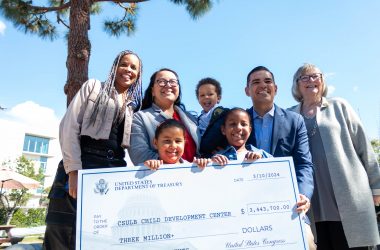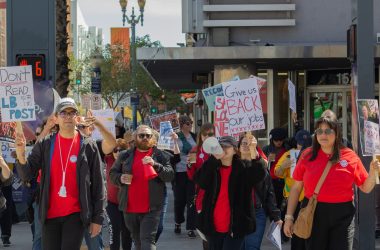Nohemi Gonzalez, 23, was in her senior year at Long Beach State when she went to Paris for a semester abroad. The industrial design major never finished the semester, as she was killed in the Paris terrorist attack in November 2015.
Reynaldo Gonzalez is Nohemi’s father. He is suing Google for “aiding and abetting” ISIS, the organization who claimed responsibility for the attack, through recommendation-based distribution tactics on Google’s platform, YouTube. This lawsuit was heard by the Supreme Court on Feb. 21.
The justices must decide whether Section 230 of the Communications Decency Act protects Google from liability as an “interactive computer service” provider and not a content creator by using algorithms to recommend ISIS content to interested parties.
Section 230 states that providers and users are not legally liable for platforming or reposting content that they did not create. The question, stated in the “Brief of economists as Amici Curiae In Support of Respondent,” is whether this legal protection applies to Google’s recommendation algorithm.
Eric Schnapper, counselor of record to Gonzalez, explained this technology on March 8 in a Judiciary Subcommittee Hearing.
“The algorithms are the method by which the companies achieve their goal of trying to interest a viewer into particular video or text or whatever and it’s done in a variety of ways,” Schnapper said.
Keith Altman is one of the counselors for Reynaldo Gonzalez who has represented him from the beginning of the lawsuit process in 2016.
“One of the key issues here is whether Section 230 protects conduct of social media companies who engage in allowing terrorists to make use of their platforms to conduct terrorist operations,” Altman said.
Google’s representative, Lisa Blatt, said during the Supreme Court hearing that internet algorithms developed as part of internet sorting methods and are key to getting users around the internet.
“All publishing requires organization and inherently conveys the same implicit message,” Blatt said. “Plaintiffs should not be able to circumvent (c)(1) by pointing to features inherent in all publishing.”
Blatt also said that, “Helping users find the proverbial needle in the haystack is an existential necessity on the internet.”
Lawyer Jess Miers, 27, worked for Google’s side between October and November of 2022 to help prepare the company to argue at the Supreme Court level.
When asked whether it was proven that those responsible in the Paris attack in 2015 had consumed the content in question, she said, “That’s one of the bigger questions, who knows if they even looked at the videos.”
She also said that the decision could have a potential impact on consumers, citing a point that Justice Amy Coney Barrett made during the Feb. 21 hearing. Barrett raised the question about what would happen to user protection under Section 230 if the interpretation that Schnapper presented were adopted.
“Section 230 protects not only providers but also users,” Barrett said. “Let’s say I retweet an ISIS video. On your theory am I aiding and abetting and does the statute protect me, or does my putting the thumbs up on it create new content?”
Miers said that she thought Barrett was suggesting that “there really is no technological difference between when I retweet somebody versus when YouTube recommends content.”
“I think that that’s crucial because often the users’ part of the protection in 230 gets left out in conversation, but ACB was exactly correct,” Miers said. “Section 230 protects those of us, the non tech companies, you know us individual users, those of us who retweet and share third party content.”
Altman said that there was a lot of work getting Gonzalez v. Google to the Supreme Court.
“There’s a tremendous amount of work preparing for the Supreme Court itself, but the work started almost seven years ago,” Altman said.
He described the process as “a very long, hard battle.”




